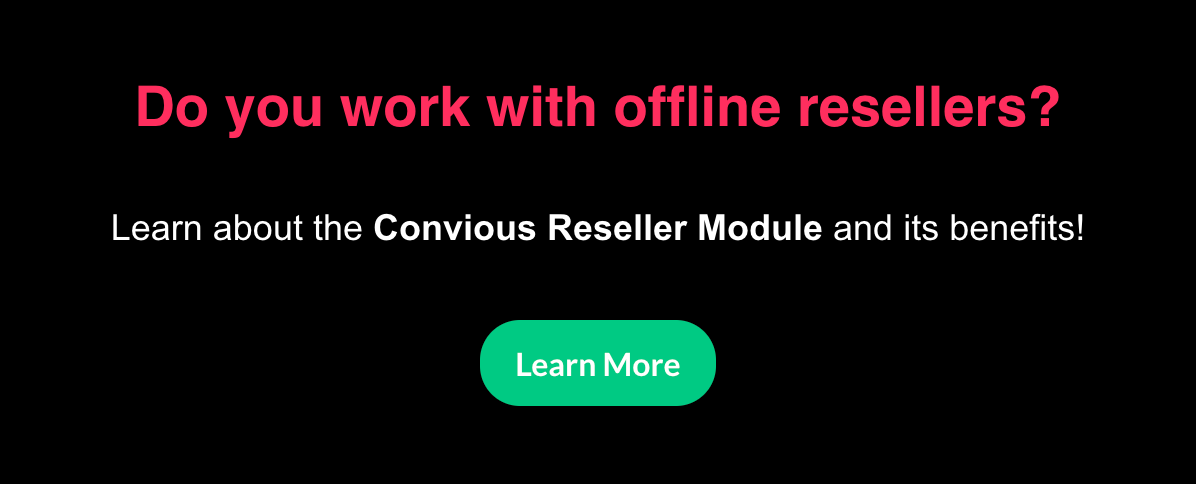Pros & Cons of working with resellers to fill your venue
The entire experience economy has been forced to transition. Many attractions and venues have faced a very challenging shift from selling mostly offline to selling up to 90% of their tickets online. We are going through a moment for change, and therefore through a huge opportunity for transformation, improvement, and innovation.
COVID-19 has made all businesses reconsider if their current business models and strategies are the most suitable ones for this “post- pandemic world”, where the online world has taken huge importance, and where embracing eCommerce the right way is essential to deliver such experiences successfully and sustainably in the long term.
The rise of the eCommerce and online sales has broadened the options of strategies and channels that you can choose for your attraction, and consequently, being able to understand the sales channel that better suits your venue and target audience is key in order to increase your revenue and business profits as well as your brand’s online presence. Keep reading and learn how to choose the right sales channel for your venue.

Pros
Less investment on marketing & sales
Resellers already have a name and a presence in the market, and therefore, you take advantage of selling under their brand name and reaching out to a wider market share that they have already acquired. Also, their broad network of local partners can help you establish a presence in new regions or markets almost effortlessly, which means that you can easily expand your venue’s sales with a low initial investment.
By selling through third-party resellers, you suddenly have a footprint in markets that you might not have been able to penetrate otherwise, so they can indeed be especially helpful when it comes to global expansion. For instance, you don’t need to advertise locally, hire people in remote locations, manage new offices, spend time marketing your products on social media, running pay-per-click advertising campaigns, or working on your search engine optimization (SEO).
However, as with the issue of cost, this is a case of short-term vs long-term gains. Although a third-party site will give you an initial boost, you need to take into account that you also need to promote your products on your own, and it will be the third-party sites that reap the long-term benefits of your promotion.
Ultimately, they help you achieve a higher volume of sales and reach a broader audience with a lower investment in marketing and sales. But… at what price? Let’s take a look at the downsides involved in selling your tickets through third-party resellers.

Cons
Brand image & loyalty
Brand image builds credibility and is crucial for your business's long-term growth, but creating a strong brand image takes time and is a long process. Conveying your brand message and mission is essential for transforming your current customers into true fans of your brand, and as your resellers will oversee the selling of your product, you will lose power over this.
There are many different factors that can influence how your target audience perceives your brand, and you will not be able to decide about all of them, such as pricing or customer satisfaction; they will entirely depend on the third-party eCommerce sites that you choose.
That means you lose control over many of the aspects involved in your tickets’ distribution, including pricing, branding, or positioning.
Less predictable revenues & lower margins
One of the main drawbacks of selling through third-party resellers is the associated expense. You are likely to be charged a listing fee and a percentage of the price of each sale you make, and even if these costs never outweigh the profits driven through marketplace sales, in the long run, this could end up costing you more than setting up your own site.
Additionally, large channel websites tend to decrease your prices in order to give out attractive discounts. Some businesses tend to decrease their own site’s prices as a solution, hoping that consumers will prefer to buy direct and from their brand. However, this puts a strain on average order value and average ticket price, and will eventually result in a race to the bottom.
Customer experience
When you sell through third-party resellers, you don’t own your data, which does not allow you to really understand who your customers are and capitalize on that information to drive true growth and true bonds with your customers that tailor to their different needs and preferences.
By owning your own data, you are able to be present at every single touchpoint of your visitors’ journey, and consequently take their experience to the next level by offering personalized and customized experiences, which will drive your venue’s long-term success.
Which eCommerce option is the right one for your business?
Selling through online marketplaces to reach new customers and expand the product base can be useful at a certain moment for boosting sales or for expanding into new markets, but as we have mentioned previously, this is an approach that will just harm your business in the long run, especially if you are highly dependent on it. You will end up selling at your lowest prices, paying high fees, losing control over your customer relationships, data, and brand. So, in short, selling through third-party resellers should not be your strategy for the long run.
Instead, by aiming for a D2C strategy, you will be able to diversify your revenue streams instead of putting all your eggs in one basket. The real solution is to have your own advanced marketing machine that uses your data in an intelligent way, and that provides you with different outcomes that will drive your business’ real growth.
By using AI-driven tools such as dynamic pricing or crowd control, you are ensuring your visitors that they won’t find the best deals or most suitable tickets anywhere else, but they will find them right on your website, which will turn them into your most loyal customers.
At Convious, we provide a 360 solution that has every tool you need in order to be in full control over your own sales, but we are also reseller- friendly and therefore we also integrate with your offline resellers.

